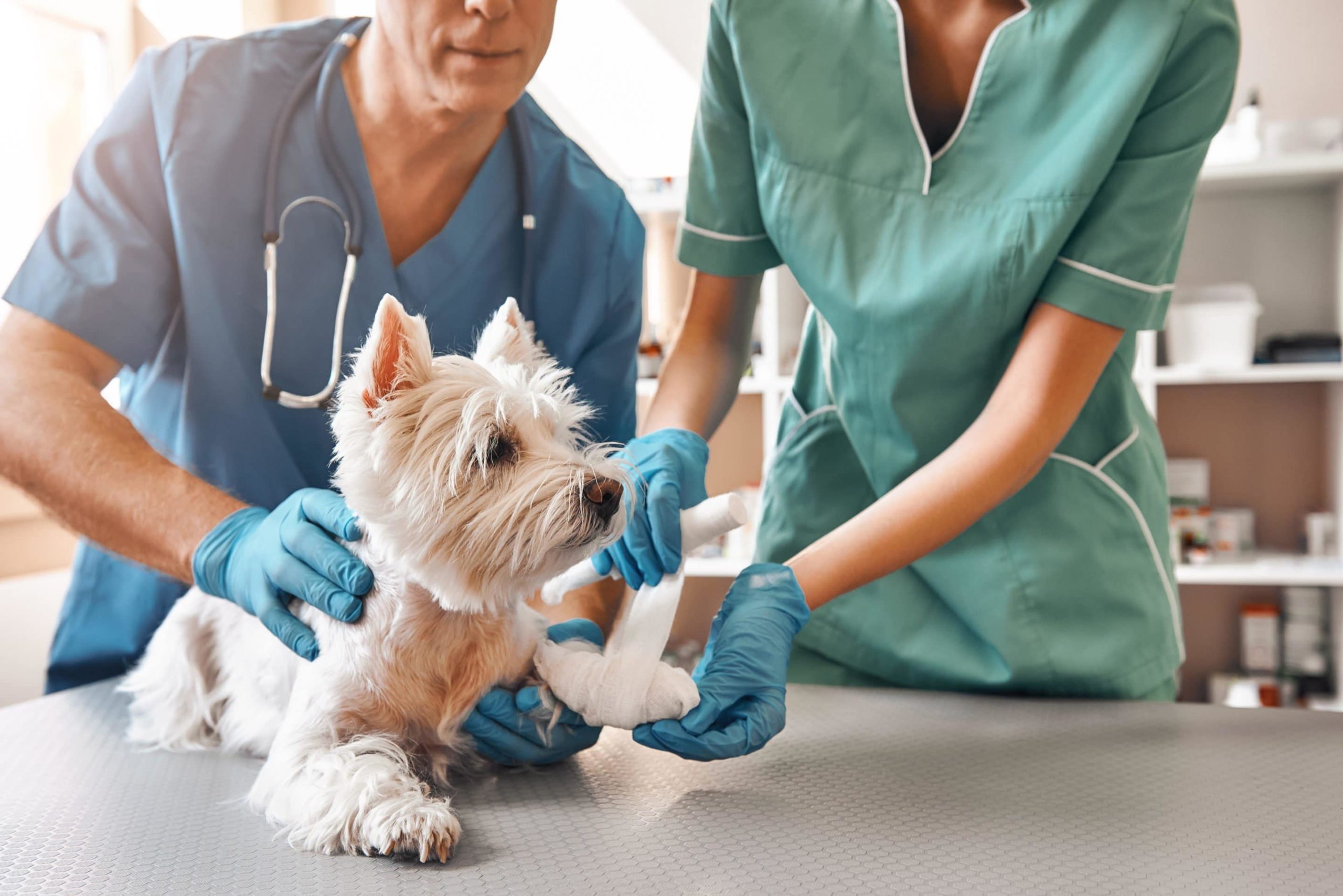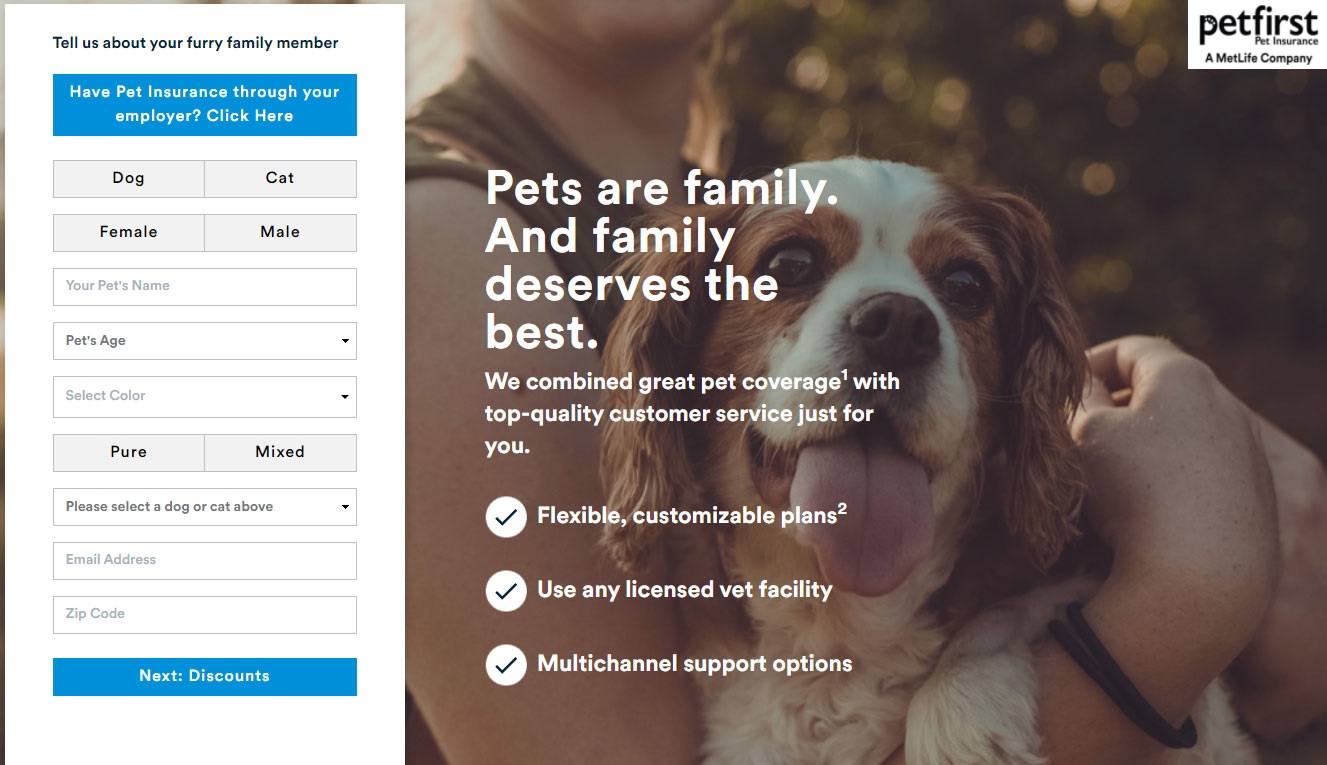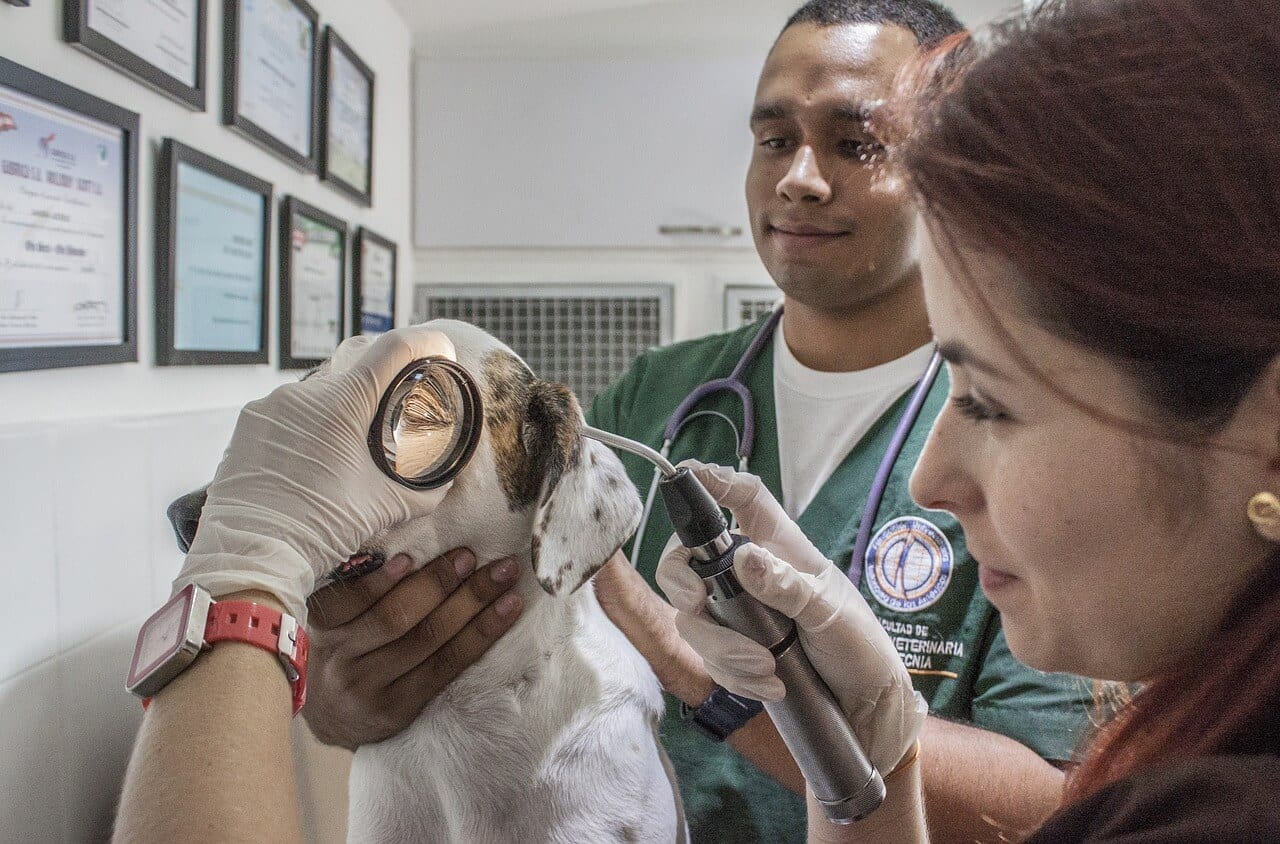How to find a good vet
The role of the veterinarian is to provide your pet with the best preventive and curative care in case of illness and accident, but also throughout his daily life. He is therefore a person who has an important place in your dog's life, and his choice cannot be left to chance, and even less based on practical criteria alone.
Finding the right veterinarian is not as easy as it seems, and can even be a real headache for the most demanding owners. In this article, we offer you some advice to help you find a professional who is as competent as he is caring for your pet.
Things to consider when finding the right veterinarian for your dog
There are many criteria that can help you determine if a veterinarian is right for your dog, his needs and your constraints.
Some are practical (budget, location, hours, etc.) and others are more related to the quality of the care given to your pet and its adequacy with his needs (reliability of the care team, equipment of the establishment, specialization of the veterinarian, etc.).
Choosing a veterinarian for your dog: the practical side
If you have a busy schedule and/or no means of transportation other than public transportation, the hours and location of the veterinarian of your choice will be important criteria. However, I recommend that you do not limit your search to these elements alone: sometimes you have to make some sacrifices to get the best for your companion! Also, if the easiest veterinarian to get to seems dubious, not attentive enough to your dog's reactions or not very concerned by his case, I strongly advise you to go your way, even if it means lengthening your journey.
In terms of finance, the question also arises because it is sometimes impossible for owners with tight budgets to access the expensive care offered by some veterinarians. To avoid unpleasant surprises, find out what the fees are before making an appointment to have your pet treated. There are other tips that can help you stay on budget without depriving your pet of effective preventive care.
Some clinics and associations - such as the SPA - offer very low-cost care based on the owner's modest income. This is usually preventive care, including sterilization and vaccination. Also, I encourage you to carefully weigh the pros and cons of health insurance for dogs, whose purpose is to avoid paying large sums of money in case of unforeseen events.
It is indeed a shame to deprive your pet of quality care for a question of budget, especially since it is usually possible to find convincing solutions to this type of obstacle.
Choosing a veterinarian based on your dog's health
The practical aspects alone are often insufficient in the choice of a veterinarian establishment perfectly suited to your dog. Some animals need specific care, and some veterinary facilities do not have the necessary equipment or skills to take care of your pet's pathology. Veterinary hospitals are generally the only ones able to treat your pet in case of injury or serious illness requiring technical examinations (radiology, scanner, MRI, etc.).
There are also veterinarians who specialize in certain fields, such as ophthalmology, dermatology or surgery, who will be better able to treat your pet if it has special needs. A healthy dog, who simply needs an annual check-up, will often be better cared for by a small veterinary practice where he will be followed by the same professional throughout his life.
Choosing a veterinarian for your dog by feeling
The relationship of trust that you will have with your dog's veterinarian is important for the best care. Communication must be easy, and the veterinary team must be educational and attentive to your concerns, as well as to your four-legged friend's discomfort. Take the time to observe the veterinarian's behavior towards his canine patients: is he gentle with them? Attentive? Interested in their cases?
Also, how does he behave with the owners? Does he listen? Does he or she take the time to explain your dog's care and its objectives? All of these elements contribute to building a bond of trust between you and the veterinarian, but also between your dog and his doctor. Other criteria can help you determine the seriousness of the veterinarian of your choice: Is the facility clean and well maintained? Do dogs and cats have separate waiting areas?
The first impressions that the veterinarian of your choice will make are very important, but they should not overshadow the competence of the professional who will take care of your pet. So don't rely on one thing to evaluate the facility, but take the time to analyze several criteria to determine which veterinarian is right for you.

Which veterinary facility should you choose for your dog?
Whether it's a practice, a clinic or a hospital, you're likely to come across different types of veterinary facilities as you search for the right place to treat your dog. Most of the differences between these facilities lie in their size and, therefore, in the amount of staff and equipment available. Also, veterinary hospitals are required to have at least six full-time veterinarians and must be able to perform all kinds of examinations.
Hospitals are open 24 hours a day, 7 days a week, to care for your pet in case of accident or illness at any time of the day or night. Veterinary clinics are smaller in size, but still have at least two operating and hospitalization rooms. They are able to treat most canine pathologies, regardless of their degree of severity.
However, they do not provide round-the-clock service, unlike hospitals, and are not the best places to go if you have an emergency at night. Smaller veterinary practices are usually run by a single veterinarian with a few assistants.
Typically, veterinary practices handle check-ups, common or minor illnesses, preventive care and routine operations. If your dog needs specific tests, it is likely that a veterinary practice will be forced to refer you to a larger facility with the necessary equipment.

How do I find a serious veterinarian for my dog?
Determining the seriousness and professionalism of a veterinarian is not easy for a novice in canine health. However, there are some factors that can help you find a competent and caring veterinarian.
Fame and reputation
Nowadays, it is relatively easy to obtain information about a professional by simply typing his name or the name of his facility on Google. By doing this simple research, you should be able to find reviews and feedback from other owners about the veterinarian you are interested in. However, be careful not to focus too much on negative reviews: you should always keep in mind that unhappy customers are quick to express themselves, while satisfied owners almost never think of leaving a positive review.
Also, too few reviews are hardly representative, especially since they can easily be left by malicious competitors. Therefore, take a step back from what you read, and do not automatically dismiss a veterinarian because of a minority of negative reviews, or because of comments that are too few to represent the general opinion of patients.
Word of mouth and recommendations
If you are looking for a good veterinarian, start by asking around: word of mouth is usually a good way to find a trusted professional. You probably have dog, cat or small pet owners in your circle who have faced the same problem as you. Ask them if they have managed to find the rare pearl!
Similarly, groomers, breeders, members of dog clubs or associations are likely to know competent veterinarians and will undoubtedly be able to recommend a trusted professional. Between practical aspects, feeling and professional skills, the choice of a good veterinarian for your dog can be complex for novice owners.
But if you take the time to do a little research, you're sure to find the one who will help you keep your dog healthy for a long time.
Loving and educating your pet also means protecting it against the hazards of life. This is why we strongly recommend that you take out health insurance as soon as possible. This will save you astronomical veterinary fees in case of accident or illness.


